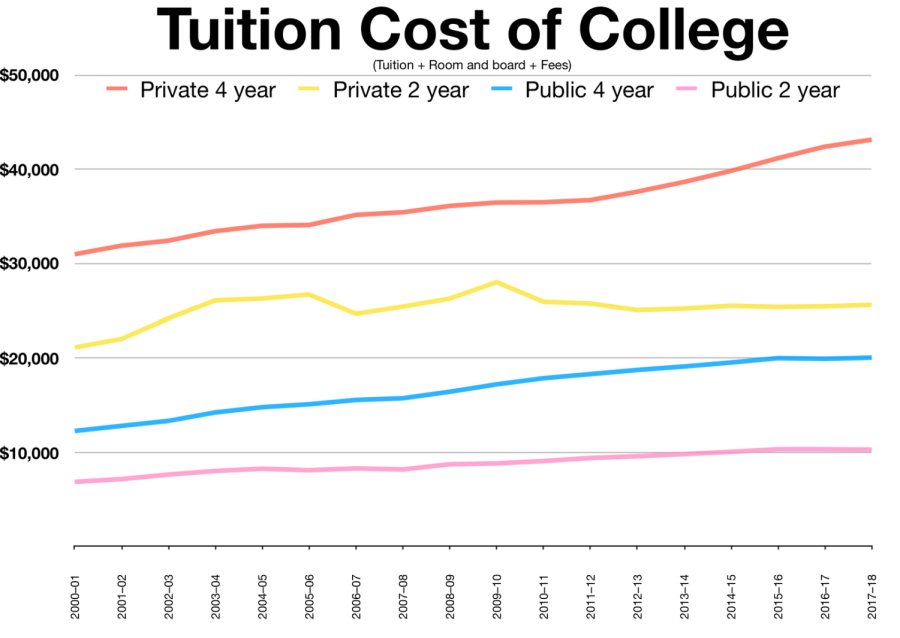Is college officially too expensive?
The prospect of attending college as a high school student is both exciting and intimidating. Opportunities are everywhere when one considers further education past high schools, but the lasting fees can be demoralizing. It’s no secret that college costs have increased recently, and this development could have major long-term effects.
One significant worry is how rising college fees may affect a person’s capacity to purchase a home. This is a scary idea for most people who aspire to purchase a home at a relatively young age. Many students must take out sizable student loans due to the growing cost of tuition in order to obtain a degree. When trying to save money for a down payment on a house, this debt can be a significant barrier.
The financial burden of attending college can also affect daily life. There may not be enough time for socializing or engaging in hobbies if students are required to work greater hours or numerous jobs to make ends meet. Students, motivated by the exorbitant sums they are paying, will want to get their value out of college, spending the majority of their time on busy college work. Increased stress and burnout may result from this, which may have long-term negative impacts on one’s mental and physical health.
“Since I’ve been a kid, everyone has told me that college was necessary, but that debt definitely has me scared,” commented conflicted junior Jack Miller. It seems many students look at college as a default extended four years of K-12 schooling, instead of an entirely different institution altogether. At its inception college was an optional pathway that only committed students indulge in. Flash-forward to 2023 college (especially university), is viewed as a standard, and anyone that doesn’t attend it is viewed as a failure.
Increasing education fees also have broader socio economic repercussions. Low-income students may find it more challenging to enroll in higher education when tuition costs rise, despite their academic ability. Senior Theo Buchwald adds to this issue, “I’m fortunate enough to not need to worry about college expenses, but the idea of not being able to go due to family income is certainly disturbing.”
In general, growing education expenditures are a reason for concern. Although a higher education is crucial and can lead to new opportunities, the financial strain may eventually affect house ownership and quality of life. As a society, we must fight to solve these problems and increase everyone’s access to and affordability of education.











